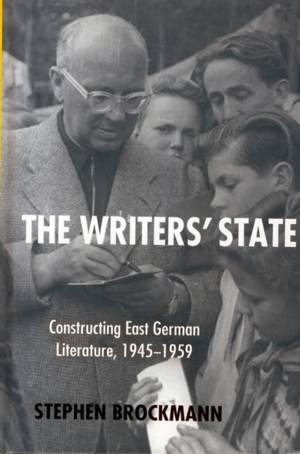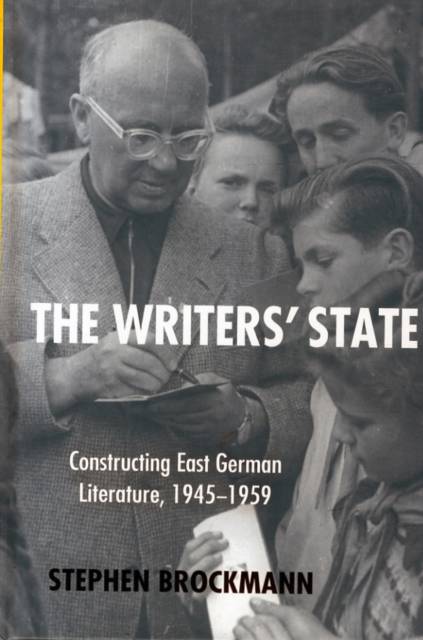
- Afhalen na 1 uur in een winkel met voorraad
- Gratis thuislevering in België vanaf € 30
- Ruim aanbod met 7 miljoen producten
- Afhalen na 1 uur in een winkel met voorraad
- Gratis thuislevering in België vanaf € 30
- Ruim aanbod met 7 miljoen producten
Zoeken
€ 209,45
+ 418 punten
Omschrijving
Twenty-five years after the demise of the German Democratic Republic, there is perhaps more scholarship being produced on all aspects of that country than ever. This is true also in the field of literary studies, but especially in English-language literary scholarship there has been a strong imbalance toward a focus on the last three decades of GDR literature. The literature of the earlier GDR has mostly been dismissed or ignored by scholars, as the discontinuities between the early and late GDR have been emphasized over the considerable continuities. This book seeks to redress that state of affairs, examining the literature produced from the very beginnings of what became the GDR through the 1950s. In doing so it applies to GDR literature the insight gained by scholars over the past few decades that the immediate postwar period was more complex, more meaningful, and more rewarding of study than it was long deemed to be. Far from all being mere propaganda or rote socialist realism, the literature of the early GDR has much to tell us about the budding socialist state, even as it goes far in explaining the developments in the later GDR. STEPHEN BROCKMANN is Professor of German at Carnegie Mellon University.
Specificaties
Betrokkenen
- Auteur(s):
- Uitgeverij:
Inhoud
- Aantal bladzijden:
- 380
- Taal:
- Engels
- Reeks:
- Reeksnummer:
- nr. 171
Eigenschappen
- Productcode (EAN):
- 9781571139535
- Verschijningsdatum:
- 21/12/2015
- Uitvoering:
- Hardcover
- Formaat:
- Genaaid
- Afmetingen:
- 152 mm x 229 mm
- Gewicht:
- 730 g

Alleen bij Standaard Boekhandel
+ 418 punten op je klantenkaart van Standaard Boekhandel
Beoordelingen
We publiceren alleen reviews die voldoen aan de voorwaarden voor reviews. Bekijk onze voorwaarden voor reviews.








